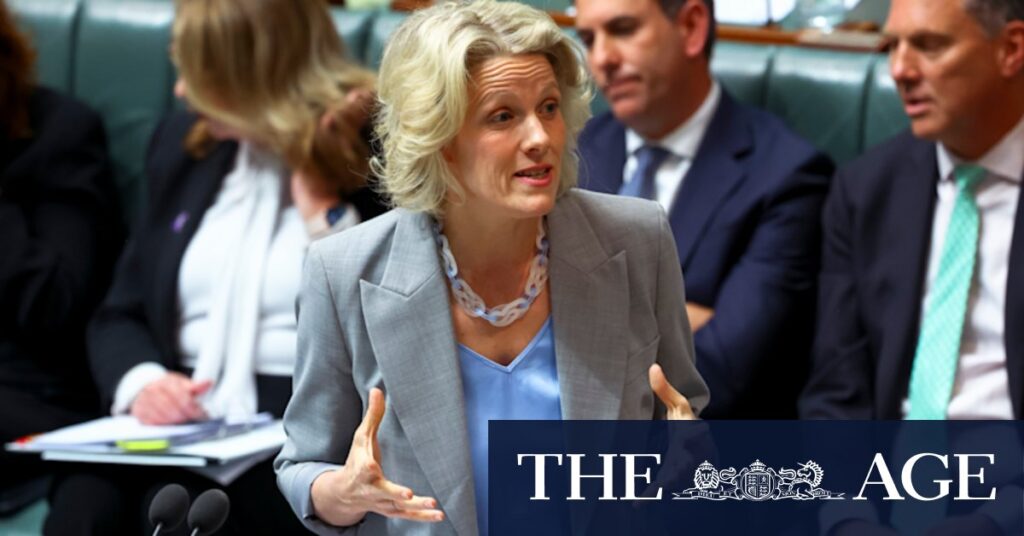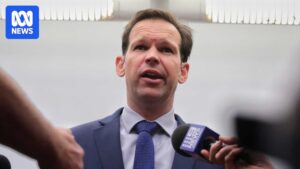
Resignations and accusations of bullying have rocked the executive ranks of Housing Australia, casting doubt on the agency’s ability to deliver the Labor government’s multibillion-dollar home-building agenda. A senior whistleblower has reached out to Housing Minister Clare O’Neil, warning that the agency’s effectiveness has been severely compromised.
Carol Austin, the chair of Housing Australia, was investigated last year by the Treasury following allegations of inappropriate behavior towards senior executives. Although the findings of this probe have been withheld from public release due to freedom of information laws, this publication has learned that while no formal breach of conduct codes was found, significant “organisational challenges” were identified. These findings have prompted the hiring of a new chief executive and the implementation of new processes within the organization.
Allegations and Resignations
Documents from the review reveal that Austin was accused by executives of actions such as rolling her eyes, interrupting people, and dismissing ideas without basis. Rod Saville, the agency’s former general counsel and board secretary, stated that Austin’s alleged behavior led to the departure of six out of eight top executives, including himself, over a year-long period.
Saville, who has held senior roles at Westpac and Optus, resigned from Housing Australia in 2024. In a letter to Minister O’Neil, he expressed his concerns about Austin’s leadership style, describing it as lacking experience and understanding of housing issues in Australia, particularly in social and affordable housing.
“It became apparent very quickly to me and other senior executives in the organisation that Ms Austin had very little, if any, experience or understanding of housing issues in Australia,” Saville wrote.
Impact on Labor’s Housing Agenda
The crisis at Housing Australia poses a significant threat to Labor’s housing agenda, which is crucial for maintaining voter trust. The Albanese government has committed to reversing decades of inadequate housing policy, investing billions in initiatives such as a 5% mortgage deposit scheme and the $10 billion Housing Australia Future Fund (HAFF). Despite these efforts, Treasury has cautioned that the government may not meet its goal of constructing 1.2 million homes by the end of the decade.
Saville highlighted the impact of executive departures on the agency’s performance, noting a lack of institutional knowledge and a poor conversion rate for HAFF projects. The ABC reported that Labor’s flagship housing program is struggling to gain momentum, with a Treasury briefing to Minister O’Neil outlining issues with Housing Australia’s efficiency and capability.
Responses and Future Implications
A spokeswoman for Housing Australia addressed the allegations, stating that the matter had been investigated and no breach of conduct was identified. Minister O’Neil’s office declined to comment on the situation. The minister took office in mid-2024, after the Treasury probe was initiated in December 2023 under the previous minister, Julie Collins.
The unfolding crisis at Housing Australia underscores the challenges facing the Labor government as it seeks to implement its ambitious housing plans. The agency’s internal struggles could hinder progress on key initiatives designed to address Australia’s housing shortage and affordability crisis.
“It is exacerbated by the fact that most of the senior executives have left, so there’s no knowledge of how the organisation should function,” Saville remarked.
Looking Ahead
As the government grapples with these challenges, the focus will be on stabilizing Housing Australia’s leadership and ensuring that its strategic goals align with the broader objectives of Labor’s housing policy. The situation calls for decisive action to restore confidence in the agency’s ability to deliver on its commitments and to address the pressing needs of Australians seeking affordable housing solutions.
With the next federal election looming, the effectiveness of Labor’s response to this crisis could play a pivotal role in shaping public perception and influencing voter sentiment. The government will need to demonstrate that it can overcome internal obstacles and deliver tangible outcomes for the Australian public.






